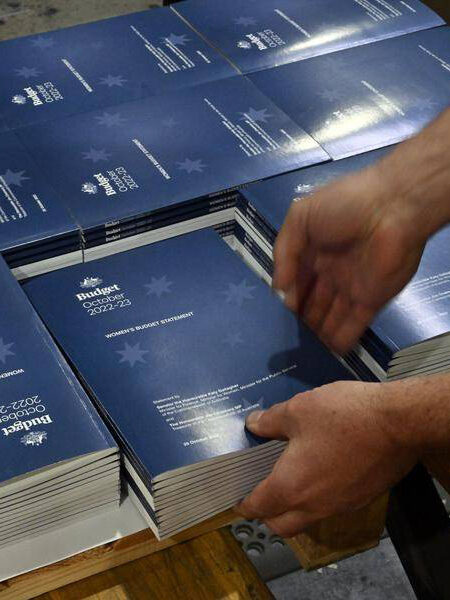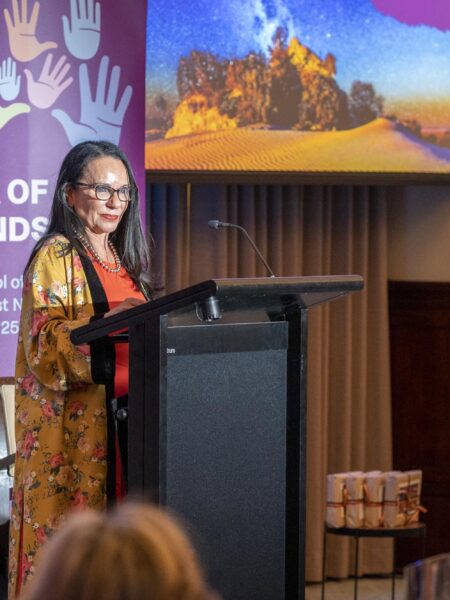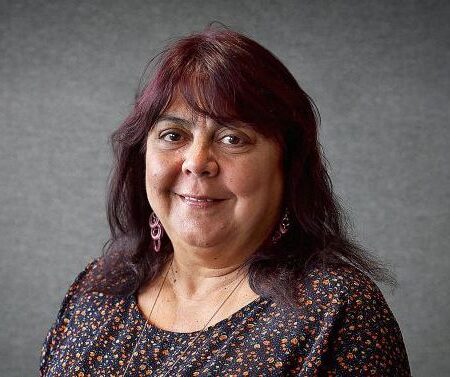Australia is the only Commonwealth nation – past or present – that has failed to negotiate a treaty with its First Nations peoples. However imperfect, treaties in the United States, New Zealand, and Canada have at least attempted to reconcile differences between the First Nations and colonisers of their lands. To be clear, treaties have historically, at times, been largely tokenistic and fallen far short of what we should be striving to achieve here in Australia in the twenty-first century. If there is anything to be ‘gained’ from two centuries of gross injustice, it is that Australia has the opportunity to apply the lessons learned from First Nations peoples elsewhere and create a Treaty (or Treaties) that truly remakes us as a nation.
At the very least, Treaties must be guided by the values of non-discrimination, equality, and self-determination as set forth by international instruments such as the United Nations Declaration on the Rights of Indigenous Peoples. The Declaration was adopted by the General Assembly on 13 September 2007 after more than two decades of negotiations and consultations involving Indigenous peoples from around the world. Australia, perhaps unsurprisingly, was one of only four nations (USA, Canada and New Zealand being the others) to originally vote against the Declaration. Two years later, in 2009, Australia belatedly joined the majority of nations (143 to be exact) in signing the Declaration.
The Declaration is the emphatic affirmation of the rights of all Indigenous peoples. Australia may have endorsed the Declaration ten years ago but it is yet to honour it through the enactment of its principles. Without a Treaty or Treaties, Australia is not doing right by its First Nations peoples.
Below are three recommendations to consider in supporting Justice, Rights, and Respect for our First Nations peoples via the Treaty-making process here in Australia:
Recommendation 1:
Adopt a broadminded definition of ‘treaty’ that more truthfully reflects the story of our nation and the experiences and perspectives of First Nations.
According to the 1969 Vienna Convention on the Law of Treaties, a Treaty is an ‘international agreement concluded between States in written form and governed by international law’. In the past, this definition has been used to exclude agreements with First Nations and to forcefully reject calls for Treaty. In 2000, then Prime Minister, John Howard stated that “A nation … does not make a treaty with itself”. Such a statement blatantly ignores the unique historical circumstances that led to the formation of our nation.
Broadening the definition of treaty to be inclusive of agreements between parties, states and peoples is a more truthful reflection of the story of nations such as ours. Adopting outdated terminology and legal definitions (the Vienna Convention is now 50 years old) can only hinder the innovative thinking and ‘truth-telling’ necessary for modern Treaty-making.
Recommendation 2:
Enact the United Nations Declaration on the Rights of Indigenous Peoples as an objective framework for guiding respectful dialogue with First Nations, political advocacy, and the process of treaty-making.
In 2007, the United Nations General Assembly’s adoption of the Declaration on the Rights of Indigenous Peoples put forward a modern vision of nations where sovereignty is shared between States and Indigenous peoples. Although calls for the reform of Australia’s legal and political systems preceded the signing of the Declaration by decades, it powerfully justifies and strengthens cries for Justice, Rights and Respect for First Nations.
The Declaration can be thought of as a universal and objective framework which establishes the minimum standards for ensuring the survival, dignity, and well-being of the world’s Indigenous peoples. It also provides a mechanism through which to protect the individual and collective rights of Indigenous peoples.
The Declaration also includes provisions relating to the right of Indigenous peoples to participate in decision-making. Article 3 recognises and affirms that Indigenous peoples have the right to self-determination, to ‘freely determine their political status and freely pursue their economic, social and cultural development’. Article 4 further guarantees that Indigenous peoples have the right to autonomy or self-government in matters relating to their internal and local affairs.
The principles underlying the Declaration can, and should, serve as a framework underpinning and guiding Indigenous dialogue, political advocacy, and any modern treaty process.
Recommendation 3:
Recognise and treat Australia’s First Nations as distinct polities, not cultural minorities, within our larger political community.
Treaty (or Treaties) must acknowledge that Indigenous peoples are not only original inhabitants and owners of land now claimed by the State but that they constitute distinct ‘polities’. A polity can be defined as a distinct political community of individuals united by a collective identity. Indigenous peoples in Australia continue to exercise a unique economic, cultural and spiritual relationship to land that qualifies their recognition as polities. However, the Australian Government by and large, chooses to treat First Nations peoples as a cultural minority within our larger political community. This is a strategy that strips First Nations of their status as polities and reduces their aspirations and demands to that of another minority interest – in effect, diminishing First Nations’ claims of their full political force.
Acknowledging Indigenous peoples as polities affirms the principles of the Declaration which recognises that Indigenous peoples can have coinciding ‘nationalities’. Article 33 of the Declaration states that membership to an Indigenous nation ‘does not impair the right of Indigenous individuals to obtain citizenship of the States in which they live.’
The principles underlying the Declaration not only reflect the aspirations of First Nations but those of a growing international community. Historically, Australia has not been at the frontline for Justice, Rights, and Respect for Indigenous peoples. I, for one, would like to be a prouder Australian. I dream of the day when our Government, with broad community support, acts like a leader – and not a loser – on issues of Indigenous Rights and Recognition.
Resources:




